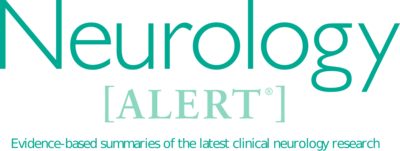
Neurology Alert – June 1, 2025
June 1, 2025
View Issues
-
Clinical Features of Biopsy-Proven Large-Arteriole and Microvasculitis in Peripheral Nerves
In this retrospective, an observational cohort study undertaken to characterize the clinical features of nerve vasculitis based on vessel size, large-arterial vasculitis (≥ 75 microns) in comparison to microvasculitis (< 75 microns) was demonstrated. Large arteriole vasculitis usually was a distal symmetrical polyneuropathy and associated with a systemic vasculitis illness. Microvasculitis most often presented with radiculopathy and/or plexopathy and was not associated with systemic illness.
-
TIA Is Associated with Accelerated Cognitive Decline
The study investigators looked at data from a prospective study of 30,239 Black and white community-dwelling persons aged 45 years or older with cognitive evaluations over the phone every other year until 2022. The researchers documented patients who had transient ischemic attack (TIA) or stroke, and demonstrated that persons who had TIA had a cognitive decline trajectory similar to those patients who had a definite diagnosis of stroke.
-
Quantitative Pupillometry in Patients with Large Middle Cerebral Artery Strokes
Secondary neurologic decline after large middle cerebral artery (MCA) stroke is common and is associated with worse outcomes. This study aimed to evaluate the utility of quantitative pupillometry to predict neurologic decline before it occurs. Although no model was found to predict decline, stable Neurological Pupil index (NPi) and dilation velocities may provide some reassurance that an imminent decline is unlikely.
-
24-Hour Activity Rhythms and Amyloid-β Deposition in the Brain
This study of dementia-free adults found that greater variability of the 24-hour activity rhythm (greater during the daytime as well as during sleep time) with fragmentation of sleep predicted increased deposition of amyloid-β (Aβ), especially in apolipoprotein E 4 (APOE4) carriers.
-
Epigenetic Changes in Perilesional Brain Tissue After Radiotherapy
Epigenetic and transcriptomic studies of irradiated perilesional brain tissue identified clear changes in deoxyribonucleic acid (DNA) methylation patterns and neuropeptide upregulation that contributed to neuroinflammation, which may underly radiation-related neurotoxicity.